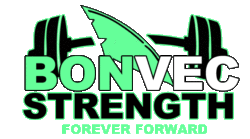Have you ever been so in the zone that you felt unstoppable? Or so flustered that you couldn’t perform the simplest of tasks, no matter how hard you tried?
We’ve all been on either end of this performance spectrum. We relish the former and cringe at the latter. It often feels like we have no control over which state we’re in, but in actuality, our mental approach can dictate our ability to tap into that coveted “in the zone” state.
In this article, I’ll discuss positive self-talk, one of the most powerful tools to create mental toughness and reduce the risk of choking when it counts the most.
Attaining Unconscious Competency
Last weekend at the CSP Fall Seminar, I talked about creating context for more efficient coaching. A large part of my presentation focused on the 4-way matrix of learning.
This matrix states that we shift through four phases en route to mastering a skill:
- Unconscious incompetency – We suck at something and we don’t realize it.
- Conscious incompetency – We suck, we realize it and we’re working to get better.
- Conscious competency – We’re good (or getting better) at something, but we have to think and try pretty hard to be good.
- Unconscious competency – We’re in a flow state. We perform at a high level without even thinking about it. This is the pinnacle of peak performance, of mastery.
If you perform or compete in anything, whether it’s baseball, powerlifting, dance, whatever, your goal is to achieve unconscious competency through your training. When it comes time to throw down, you don’t want to have to think too much about what you’re doing – you want it to happen automatically. In the words of Nike, you want to just do it.
How do you get there? Practice. Lots and lots of practice.
Practice so much it becomes automatic. Second nature. Practice so you only have to focus on your level of effort, not the particular execution of complex skills.
Focus Phrases to Conquer Overthinking
How do you NOT think about what you’re doing? We know that’s almost impossible. But overthinking during the heat of competition can be crippling.
Our brain doesn’t recognize the word “don’t”. If I say, “don’t think about pink elephants,” what do you think of? Despite never seeing a 2-ton lipstick-colored, ivory-tusked mammal in real life, you immediately picture it in your mind.
Using positive self-talk and creating focus phrases can help narrow your focus and allow your body to automatically execute a practiced skill without the interference of self-doubt or overthinking.
Brian Cain, a world-renowned peak performance coach and mental game master, taught me to use focus phrases as a high school baseball player. Baseball is too fast a game to think about the mechanics of your swing while the pitcher throws the ball. Rather than thinking about swinging or allowing self-doubt to creep in (i.e. “don’t strike out”), Cain told me to repeat my focus phrases over and over in my mind:
“Rip it. Rip it. Rip it.”
He taught pitchers to do something similar. To help focus on pounding the strike zone, they’d silently say:
“Pound it. Pound it. Pound it.”
These phrases eliminate doubt and simplify the game. The same approach can be used for powerlifting during the big lifts.
 Coaching Cues vs. Focus Phrases
Coaching Cues vs. Focus Phrases
Clearly, coaching cues are important. I dedicated an entire 45-minute presentation to coaching cues last Sunday. They’re how we learn.
But when the time comes to step onto the platform and compete, do coaching cues actually work? Dr. Gabriele Wulf, a professor of motor learning at UNLV has done tremendous research that shows that self-cueing during competition actually decreases performance because it slows down the brain’s ability to execute a task.
So what do we do instead? Rather than thinking about the skill itself (i.e. “chest up, chest up, chest up” for the squat), pick a focus phrase that is purely effort-based and has nothing to do with the mechanical aspects of the skill. Examples include:
- “Crush it, crush it, crush it”
- “Drive, drive, drive”
- “Explode, explode, explode”
- “Punch, punch, punch”
Repeat these phrases over and over in your head from the moment you grab the bar in your hands. From start to finish, your self-talk should put you on autopilot.
None of these are specific to any particular part of the squat, bench press or deadlift, but they’re aggressive action words that emphasize maximal effort instead of highlighting certain segments of the lifts.
At this point in the game, your lifts should be automatic. All you want to adjust is your effort and intensity, which can be easily manipulated by your focus phrases. This lets all your training shine through as you execute a lift you’ve done hundreds or thousands of times in the gym.
When I sling weights around with my training partners, we rarely cue each other during big lifts. Rather, we motivate with focus phrases. I’d prefer “let’s go!” or “smoke this!” over “keep your knees out” or “tuck your elbows” every single time.
Make the Trade
Next time you get under the bar for a heavy set, switch your coaching cues for a positive self-talk focus phrase and see what happens. I’ll bet you don’t forget how to do the lift. Rather, you’ll probably perform the lift just fine, maybe even better, because you’ve allowed things to happen automatically and focus solely on your effort and intensity.

